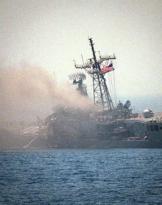The Duma, the Russian Parliament, received a bill from the President of the Russian Federation Vladimir Putin, aimed at suspending the INF (Intermediate-range Nuclear Forces) on short and medium-range missiles with the United States.
Putin's decision is the consequence of the intention of the American President Trump, announced the October 20 last year, to exit unilaterally from the Treaty, signed in the 1987 between the then USSR and the Reagan Administration, and which concerned the complete elimination from the European Theater of short-range missiles (500-1000 km) and medium-range (1.000-5.000 km).
According to Washington's motivation, the Russians would have been violating the Treaty for years, a violation also recognized by other NATO members, at the 2018 meeting held in Brussels in early October.
Very probably, in aligning - perhaps a little too hastily - with the positions of the Trump Administration, the Europeans thought they would progressively arrive at a strategic situation, centered on diplomatic actions intended to confirm and strengthen the INF Treaty, which represents, without a shadow of doubt, the cornerstone of European security.
The main mission of NATO should consist in pursuing a strategic balance with the Russian Federation, certainly not re-proposing a new nuclear arms race as an end in itself.
In the light of current analyzes, the United States does not seem particularly interested in trying to force Moscow to return to the terms of the INF Treaty. The will of the Trump Administration (expressed mainly by the National Security Secretary John Bolton) would be aimed at using the alleged Russian violations as a pretext to exit the treaty, then regain full freedom of maneuver regarding the development and deployment of nuclear weapons of theater-based theater in Europe.
 The ultimate aim is not to restore a strategic balance put at risk by Russian initiatives, but rather to establish a new status quo that is more favorable to Washington's interests and objectives.
The ultimate aim is not to restore a strategic balance put at risk by Russian initiatives, but rather to establish a new status quo that is more favorable to Washington's interests and objectives.
Whatever the type of new theater nuclear weapons that the United States could develop and consequently deploy, they would still be destined to be used to hit targets on the territory of the Russian Federation.
By contrast, the weapons that would be deployed by the Russians would target targets located on the territory of European NATO countries - especially those that will welcome the new US weapons - but not on that of the United States.
The picture just outlined would favor the strengthening of the Pentagon's plans - which have been in preparation for some time - for a nuclear war limited to the Russian / European theater and therefore from the collateral effects, from the American point of view, acceptable, and without having to fear retaliatory attacks against the national territory.
Obviously Moscow is perfectly aware of the situation, in fact, an eventual deployment of ballistic missiles in Poland would allow to hit the city of Moscow in less than 4 minutes from the launch (less than two minutes would be needed instead to hit St. Petersburg), significantly reducing the margin of notice available to the Kremlin for a possible reply.
Trump's unilateral move has created a strong state of unrest among European partners, who may be willing to accept the deployment of new Euro-missiles but only as a means of pressure to convince the Russians to fit the parameters of the INF Treaty. However, the American withdrawal could push Moscow to deploy a new generation of theater nuclear weapons (including an updated version of the SS-20), causing Europe to fall into a state of absolute precariousness.
Photo: TASS / MoD Russian Fed












